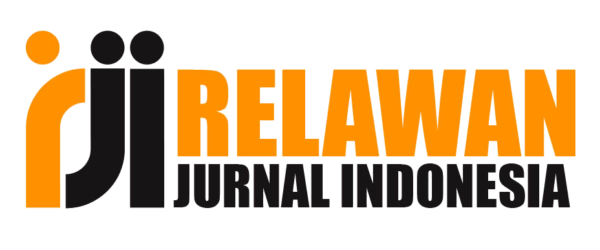Meningkatkan kompetensi guru SMA/MA dalam mendesain eksperimen fisika sebagai upaya melatihkan keterampilan abad 21
Abstract
Experimental activities are a hallmark of science learning (one of which is Physics), where students are allowed to gain experience as scientists to discover a concept. Through experimental activities, students are actively involved in learning and discovery, so students will gain knowledge and be trained in 21st-century skills that students need. One of the determinants of the implementation and effectiveness of experimental activities in learning Physics in schools is the knowledge and skills of teachers in designing experimental activities, especially in pandemic masses where learning is generally carried out online. So that training activities for teachers are needed as an effort to train students' 21st-century skills through appropriate experimental activities. The one-shot case study method was used with data collection instruments in an open questionnaire and a multiple-choice concept mastery test to see the impact of the training activities attended by 65 high school teacher participants from various regions throughout Indonesia. Based on the data processing results, information was obtained that all participants gave a positive response to the training activities with the achievement of mastering the concept of designing experiments in the good category. Based on the results of the analysis that has been carried out, the experimental design training activities can provide knowledge and motivation for teachers to carry out experiments in physics learning at school. It is expected to train students' 21st-century skills. However, based on the results of the activity evaluation, it was found two things that became material for reflection on the improvement of activities; namely, there were at least 4 participants who experienced internet network problems during the activity, and the duration of the training time was still lacking.
Keywords
Full Text:
PDF (BAHASA INDONESIA)References
Khasanah, U., & Herina, H. (2019). Membangun karakter siswa melalui literasi digital dalam menghadapi pendidikan abad 21 (revolusi industri 4.0). In Prosiding Seminar Nasional Program Pascasarjana Universitas PGRI Palembang.
Larson, L. C., & Miller, T. N. (2011). 21st century skills: Prepare students for the future. Kappa Delta Pi Record, 47(3), 121-123.
Mardhiyah, R. H., Aldriani, S. N. F., Chitta, F., & Zulfikar, M. R. (2021). Pentingnya keterampilan belajar di abad 21 sebagai tuntutan dalam pengembangan sumber daya manusia. Lectura: Jurnal Pendidikan, 12(1), 29-40.
Kebudayaan, K. P. (2017). Implementasi Pengembangan Kecakapan Abad 21 dalam Perencanaan Pelaksanaan Pembelajaran (RPP). Direktorat Jenderal Pendidikan Dasar dan Menengah, 4.
Kurnia, N., Degeng, I. N. S., & Soetjipto, B. E. (2017). The implementation of find someone who and two stay two stray models to improve students’ self-efficacy and social studies learning outcomes. IOSR Journal of Research & Method in Education (IOSRJRME), 7(03), 66-70.
Mayasari, T., Kadarohman, A., Rusdiana, D., & Kaniawati, I. (2016). Apakah model pembelajaran problem based learning dan project based learning mampu melatihkan keterampilan abad 21?. Jurnal Pendidikan Fisika Dan Keilmuan (JPFK), 2(1), 48-55.
Cahyaningtyas, T. I., Yudhaningtyas, S. P., & Amelia, R. (2021). Kegiatan Lesson Study dalam Model Pembelajaran Heuristik Vee Sebagai Jawaban Tantangan Pembelajaran Abad 21. Educatif Journal of Education Research, 3(2), 87-96.
Kemendikbud. (2017). Permendikbud No. 22 Tahun 2016 tentang Standar Proses Pendidikan Dasar dan Menengah. Jakarta: Kementrian Pendidikan dan Kebudayaan
Kidman, G., & Casinader, N. (2017). Inquiry-based teaching and learning across disciplines. London: Palgrave Pivot, 10, 978-1.
Nugraha, M. G., Purwana, U., Parwati, S., & Kirana, K. H. (2021). Homemade experiment for understanding the fluid continuity principle. Physics Education, 56(3), 035013.
Nugraha, M. G., Kirana, K. H., & Saepuzaman, D. (2014, October). Efektifitas Model Pembelajaran DiscoveryInquiry Untuk Meningkatkan Keterampilan Berpikir Rasional Siswa. In Prosiding Seminar Nasional Fisika (E-JOURNAL) (Vol. 3, pp. 43-47).
Nugraha, M. G., Utari, S., Saepuzaman, D., Solihat, F. N., & Kirana, K. H. (2019, November). Development of basic physics experiments based on science process skills (SPS) to enhance mastery concepts of physics pre-service teachers in Melde’s law. In Journal of Physics: Conference Series (Vol. 1280, No. 5, p. 052075). IOP Publishing.
Syafiâ, A., Handayani, L., & Khanafiyah, S. (2014). Penerapan Question Based Discovery Learning Pada Kegiatan Laboratorium Fisika Untuk Meningkatkan Keterampiulan Proses Sains. UPEJ Unnes Physics Education Journal, 3(2).
Azizirrahim, E., Sutrio, S., & Gunawan, G. (2015). Penerapan pendekatan keterampilan proses sains dalam model pembelajaran guided discovery untuk meningkatkan hasil belajar IPA Fisika pada siswa kelas VIIA SMPN 8 Mataram tahun ajaran 2015/2016. Jurnal Pendidikan Fisika dan Teknologi, 1(4), 272-275.
Usmeldi, U. (2016). Pengembangan Modul Pembelajaran Fisika Berbasis Riset dengan Pendekatan Scientific untuk Meningkatkan Literasi Sains Peserta Didik. Jurnal Penelitian & Pengembangan Pendidikan Fisika, 2(1), 1-8.
DOI: https://doi.org/10.17509/wapfi.v8i2.43969
Refbacks
- There are currently no refbacks.
Copyright (c) 2023 Muhamad Gina Nugraha

This work is licensed under a Creative Commons Attribution-ShareAlike 4.0 International License.
The Journal Wahana Pendidikan Fisika http://ejournal.upi.edu/index.php/WapFi/ is licensed under a Creative Commons Attribution-ShareAlike 4.0 International License
The Journal WaPFi (Wahana Pendidikan Fisika).
All rights reserverd. pISSN 2338-1027 eISSN 2685-4414
Copyright © Faculty of Mathematics and Science Education (FPMIPA) Universitas Pendidikan Indonesia (UPI)











